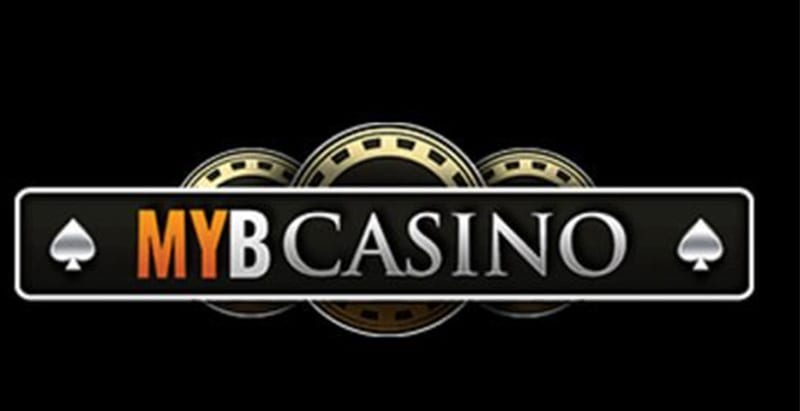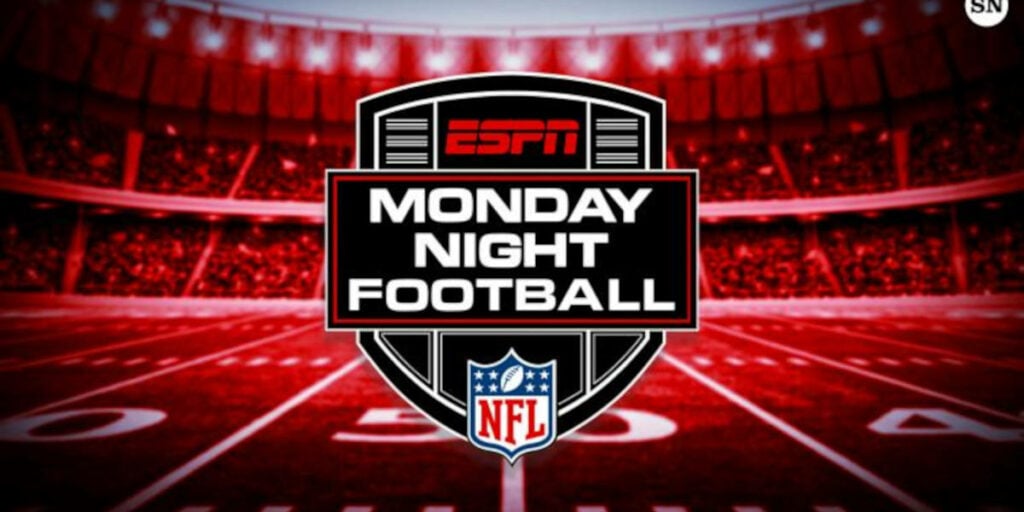Play Real Money Slots
At PlaySlots4RealMoney.com, our goal is to provide readers with a one-stop shop for everything they need to successfully navigate the world of online casinos and real money slots. You can count on us to deliver impartial and honest online slot site reviews, educational and reliable information on all things related to online casinos, exclusive bonuses, and the latest news from the industry.
Our belief is that gambling should be a fun and safe experience, and we are dedicated to sharing our expertise, insights, and passion to equip you with all the tools and resources necessary to play slots for real money with confidence. On our site you can expect to find:
- Best places to play online slots for real money
- Exclusive promotions and bonus offers for top online slots casinos
- In-depth and 100% independent reviews
- Research articles, game guides, and other useful slots resources
- Up-to-date news from the online casino industry
Did you know we’re also an authority on Bingo? Many of our visitors love this game as well as slots. Check out our USA online bingo page for more on that.
About Real Money Online Slots
If you’ve ever been to Vegas, you know how thrilling it is to play with real money and win cash prizes, Playing online slots for real money brings the same level of fun and excitement you can experience at brick-and-mortar casinos with the added convenience of being able to do it from the comfort of your home. Or, from anywhere really, as long as you have your smartphone with you. For this reason, more and more traditional casino players are switching to online slots. Plus, gambling sites have an advantage over traditional casinos as they’re able to offer innovative games, cutting-edge technology, amazing graphics, and attractive bonus packages. This opens the doors for unique reel structures and creative extra rounds that you likely have never seen before.
The added perk is that gambling sites commonly feature literally thousands of online slots of all types and varieties. This means that every player, from newbies to experienced pros, can find the game to their liking. In addition, most games are filled with extra features that make the gameplay even more exciting and provide more opportunities to increase your winnings. On top of all this, most sites where you can play online slots for real money offer valuable bonuses with and without a deposit, progressive jackpots, and reward programs to attract new players and retain the current ones.
About Us
The content you read on our site is created by a team with years of combined experience in the gambling industry, both online and offline.
Our team features seasoned industry professionals, casino experts, and passionate gamblers, all working towards a common goal of delivering the informative, educational, and entertaining content. Each team member takes pride in their work and you can rest assured that every article and review your read on our site is backed by extensive research and countless hours of testing.
After all, just like our readers, we all love to play slots for real money and are more than willing to put our money where our mouth is, playing the games ourselves to provide you with first-hand experience. Transparent and relevant information is the key to a healthy industry environment and everyone at PlaySlots4RealMoney.com is more than happy to play their part in making it happen.
How We Rate & Review
We are well aware of how valuable accurate and reliable information is to our readers. When playing online slots for real money, secure, safe, and fair gaming is of the utmost importance. To ensure that we can provide dependable advice that our users can rely on, each site we review goes through a rigorous and robust rating process. Every site that earns our recommendation as legit and reliable is measured on several different criteria. Among the things we cover are:
Deposits and Payouts – We check every real money slots site to make sure that you will get paid when you win. Our researchers investigate whether the site features safe deposit options and if the withdrawal methods ensure a fair and swift payout.
Site Security – We make sure that every site worthy of our positive recommendation protects both your personal information and your deposited funds. This involves checking the background of each online slot site we review. the first thing we look for is where the site holds a trusted license from a reputable regulatory body, such as Malta Gaming Authority (MGA), UK Gambling Commission (UKGC), or Kahnawake Gaming Commission. Another important factor needed for a positive review on our site is carrying out KYC (Know Your Customer) procedures, used to verify the identity of players and the source of their funds to prevent fraud. Plus, our reviewers always look for valid SSL certificates to make sure that the site isn’t sharing players’ personal data with third parties.
Customer Support – The area that best shows how much real money gambling sites value their players is customer support. Quick and polite answers to your queries and swift solutions to potential issues are a vital part of an enjoyable gambling experience, Therefore, we review the sites to make sure they feature top-notch customer service. This includes measuring response time and checking whether these sites offer 24/7 support, different support channels (live chat, phone, email), and multi-language communication.
Game Variety and Providers – The lobby with available games is the heart of every online slot site. We grade every site on how rich its portfolio is, how many different slot genres they offer, and how up-to-date is their offer when it comes to the latest games on the market. Furthermore, we check if the games offered on the site are supplied by reputable providers. We’ve also got you covered if you’re passionate about other gambling games such as online keno.
Bonuses and Promotions – An important part of the appeal of a real money slots casino is its bonus package. We investigate whether the site offers generous bonuses to new players and do they reward loyal members with bankroll-boosting promotions.
Types of Real Money Slot Games
Players at gambling sites that offer the opportunity to play slots for real money can enjoy a wide range of different game types and genres with a variety of themes and visual designs. Each of these types features its own kind of gaming experience, bonuses, and extra features. Below is a short overview of each of the basic types of real money online slots.
3-Reel Slots– 3-Reel online slots are the ones that are the most similar to the classic slot machines we’re used to seeing in brick-and-mortar casinos. As their name says, these slots feature 3 reels commonly filled with classic symbols such as horseshoes, card numbers, diamonds, or fruits. Usually, they have only a single payline and the goal is to hit three matching symbols. 3-Reel slots are perfect for players who prefer a more casual and relaxed gaming experience.
Multi-Reel and Multi-Payline Slots – Slots with multiple reels and multiple paylines are the somewhat more complex version of 3-Reel slots. Players work with many paylines (usually 25 or 50) across multiple sets of reels.
Video Slots – This type of slot is known for incorporating certain storytelling elements into the gaming experiences. Often, they will have a specific theme based on mythology, literature, movies, and TV shows. Commonly they will feature exciting bonus round and extra features providing more ways to win big.
3D Slots – The advancements in software technology and faster processing speeds brought forward 3D slots, which are basically the next generation of video slots. They offer even more immersive experiences, rich 3D imagery, and more complex themes and storylines.
Progressive Slots – Online progressive slots offer the biggest opportunity for huge payouts. The slots of this type are connected to a network across multiple sites and have numerous players, often thousands, feeding into the jackpot. A percentage of every bet wagered on the game goes into the prize pool increasing the jackpot until a lucky player manages to hit it. The winner can usually expect a massive payday, often passing the million-dollar mark.
No Download Slots – All the fun of the best slot games without the need to download anything. These offer you a way to play at the top online slots sites with no app or software needed. You simply play straight from your phone or computer’s browser.
Online Pokies – For our Australian and New Zealand players, find the top casinos for pokies games – both real money and free.
We Bring You The Best Real Money Slots Bonuses
A big part of what we do here at PlaySlots4RealMoney.com is trying to provide our visitors with the biggest and most lucrative bonuses in the industry. Through partnering with some of the top sites featuring real money slots, we managed to secure some of the most attractive bonus packages for our readers. We know how important bonuses and various promotions can be for your entire gaming experience as they extend the gameplay and add a little bit extra to your bankroll. If you’re new to online gambling, you can read the explanation below detailing how bonuses work.
Online casinos operate in a very competitive market and often try to do everything in their power to attract new members and encourage them to choose their sites over competitors. Luckily for real money slot players, this means that there are plenty of perks available even when you register on a certain site for the first time. Almost every gambling site offers their first-time members a welcome bonus which entails receiving free credit to play online slots on their platform once you make your first deposit. This means you’ll have more chances to play and place your bets, thus increasing your odds of winning.
In an effort to keep you playing online slots for real money on their site, most online casinos also offer no deposit bonuses. This basically means that can play for free and win real money even without depositing any of your own funds. Even though they’re rarely high in value, No Deposit Bonuses are very popular among players as they offer the opportunity to get a free taste of action and test some new slots that may have drawn their attention. Make sure to regularly follow our site to stay informed on the latest No Deposit Bonus offers.
Free spins are another way of getting a free taste of casino action without having to pay for it. Online casinos will often offer a certain number of free spins to new or existing players who fulfil particular conditions. Even though the spins are free, all the potential winnings are added to your bankroll or play money.
Reload bonuses are a way for casinos to reward their loyal players for continuing to play on their site. They’re only given when to existing customers who have already made deposits in the past. Usually, a reload bonus entails increasing the player’s deposit for a certain percentage of the amount they deposited. This helps online casinos keep players on their platform instead of jumping from site to site in search of welcome bonuses.
Real Money Slots Banking
One of our main goals and an essential part of our mission is helping our readers find a safe and secure environment for playing real money slots. A major factor in creating this kind of gaming experience is the existence of reliable banking options. Safe deposits and quick and easy withdrawals are our top priority when awarding a positive review to an online casino. To help you get familiar with how all this works, we provided a short explanation for each of the most common banking options on online gambling sites.
Credit and Debit Cards
This is probably the most popular banking option when it comes to real money slots at online casinos. It’s also likely the most secure one as credit and debit cards are issued by banks that have extremely strict security policies. Some card providers, like VISA, even have their own extra safety features, such as Fraud Protection. Still, some players are not too eager to share their gambling activities with their banks, so they prefer other banking options.
E-Wallets
E-Wallets are a great way to deposit and withdraw your money from online gambling sites without having direct contact between the bank and the casino. There is a large number of E-Wallets services available, but the most reputable include Neteller, PayPal, and Skrill.
Prepaid Cards
Using a prepaid card, such as Paysafecard, is a great option if you prefer your dealings with the casino to be mostly in cash. All you have to do is go to the nearest store offering this service, purchase a card of a certain cash value, and deposit the money to the online casino using a 16-digit PIN code.
Cryptocurrency
Cryptocurrency deposits are becoming increasingly popular among online slot players. As they’re not operated by banks or other third parties, they offer a great deal of anonymity and security when it comes to your personal data. Plus, at most online casinos, this is the fastest banking option, commonly with minimal fees.
Bitcoin casinos are especially popular with our USA players.
Real Money Slot Game Features
A big reason for the popularity of USA online slots for real money is the slew of extra features commonly found in each game of this kind. They play a big role in making slots more engaging, and exciting, although their complexity can sometimes be confusing for newbies. For those new to this type of gambling, here is a brief intro into the features of real money slots.
In most online slots for real money, wilds are the symbols that can replace any other symbol to create a winning payline. There are several different types of wilds, including stacked, expanding, and sticky wilds.
Scatter appears randomly on the reels and rows and often can be very lucrative as usually trigger extra features, such as free spins or mini-games. In most cases, these bonus rounds are activated after landing a certain number of scatter anywhere on the reels.
Bonus Rounds are fairly common in online slot games where they appear as additional rounds after you’ve completed a certain task or matched the required symbols. They can come in form of gamble/risk options, and various mini-games, for free spins. Landing the right symbols during the bonus rounds usually leads to massive payouts.
As their name says, multipliers are symbols that multiply your winnings by a certain number of times. Needless to say, this can significantly increase your price. Depending on the type of multiplier, the win amount can be doubled, tripled, right up to 10 times, or even more.
Sticky Symbols
Sticky symbols are a relatively new feature, exclusively appearing on online slots. When you land this symbol it will keep its place and keep the reel fixed for several spins. Sometimes, stickies are tied to another feature, such as a wild or scatter, boosting your winning even more.
Real Money Slots – Your FAQs
What are the best online slots sites?
The list of best online slot sites may differ, depending on a certain player and what they look for in this type of gambling platform. Different sites will have different game portfolios, varied banking options, and different bonus packages. We recommend going through our reviews of online slot sites and finding the one that suits you best.
What are the most popular slots games?
Again, different players will favor different slot games. However, there are some games that are definitely more popular than others. This group includes games such as Book of Ra, Dead or Alive, Starburst, Mega Moolah, and Book of Dead.
Do I have to play for real money?
Most online casinos also offer free games. So, if you don’t feel like investing real money, you can try some of those. Free modes of popular games are also a great way to test a game before betting a wager on it.
Do I have to make a deposit?
Commonly, if you want to play slots for real money and win cash you have to make a deposit. However, you can make use of no deposit bonuses and get a chance to win without actually making a deposit.
Can I play slots on my mobile device?
Yes, most reputable online casinos are also available on mobile devices. This means you can play slots for real money no matter where you are
Can I play real money slots in the USA?
You can play real money online slots in the USA, but only in certain states. Make sure to check if your state has legalized this form of gambling.



































